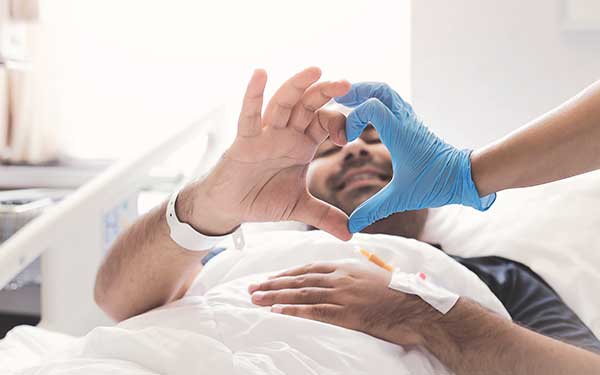If you are thinking about quitting alcohol, drugs, or another addictive substance but want an alternative to detoxification centers and programs, self-detox might be the option for you. Self-detox is not a treatment method but rather a process that helps people withdraw from substances without professional guidance. While it can be effective in some cases, it has many disadvantages as well. In this blog post, we discuss the benefits of self-detox vs. medically assisted detoxification so that you can make an informed decision on which one will work best for your needs.

Table of Contents
What It Means to Self-Detox
Self-detoxification, or detoxing on your own, is the process of withdrawing from a substance without professional help. This can be done by tapering off the drug or alcohol over time, stopping cold turkey, or using medication to ease the withdrawal symptoms.
The main benefit of self-detox is that it is free and accessible to anyone who wants it. People may feel uncomfortable asking for help or find that they do not have the resources or support system necessary for a full treatment program and self-detox is an alternative option. There are also lots of home remedies for detoxification including:
- Detoxing through exercise
- Managing your diet
- Taking supplements (such as milk thistle)
- Drinking detox teas
- Using a sauna
- Managing stress
The Drawbacks of Self-Detoxification
There are, however, several things to be wary of when considering self-detoxing. First and foremost, with no professionals around to help you or to offer support, it can be very easy to give up prematurely. This is especially true if you are detoxing from long-term addiction. In addition, self-detox can be dangerous if not done correctly – for example, withdrawing from alcohol all at once can be seriously harmful or deadly.
Additionally, you may be at a higher risk of a relapse if you try to detox on your own. Without the structure and support of a treatment program, it can be difficult to stay motivated and stick with the detox process. Finally, self-detox may not be effective for everyone – especially if you have a severe addiction or are dealing with other mental health issues.
What Is Medically-Assisted Detoxification?
In contrast to self-detox, medically assisted detoxification means that you work with a medical professional who helps you withdraw from the substance safely. It is often the first step in addiction treatment and it can be done in one of two ways:
Tapering off substances gradually under supervision is called medication-assisted maintenance and may include drugs like methadone or buprenorphine. It is designed to help people addicted to opioids, heroin, or prescription painkillers wean themselves off of the drugs slowly and without experiencing withdrawal symptoms.
Rapid detoxification is a more aggressive approach that uses anesthesia to put people into a deep sleep for several hours while they are detoxified from alcohol, benzodiazepines (such as Xanax or Valium), or other drugs.
The Benefits of Medically-Assisted Detoxification Compared to Self-Detoxification
As you can see, there are many benefits that come from medically assisted detox over self-detox. First and foremost, doctors who specialize in addiction psychiatry will be able to help people manage their withdrawal symptoms and provide emotional support during the process. They can also provide professional guidance and insight on how to prevent relapse once you complete detoxification.
Professional care is typically designed around a specific treatment plan that includes counseling, group therapy, medication management (when necessary), family education, etc., all of which are essential for helping people recover from addiction long-term. Furthermore, medically-assisted detoxification is often seen as a more successful first step in treatment, leading to better outcomes in the long run.
The Drawbacks of Medically-Assisted Detoxification
Like self-detox, there are some potential drawbacks to medically assisted detox. First and foremost, it can be expensive – especially if you opt for the more expensive and intensive rapid detox option. Also, many doctors who specialize in addiction psychiatry may not accept insurance or they may have long waitlists for appointments – meaning that you may need to pay out of pocket which can be a significant financial burden if you do not have the resources.
Lastly, some people feel uncomfortable with medications, anesthesia, or surgery, which may cause them to prefer the more natural route of self-detox. However, it is important to note that medically assisted detox does not require surgery and anesthesia (except in some cases where patients are treated for alcohol addiction).
Whether you choose to self-detox or find medical help, the most important thing is that you are well-informed about your conditions and the options that you have and that you take the time to make the best decision for yourself or your loved one. There is no right or wrong answer – only what is best for your unique situation.






